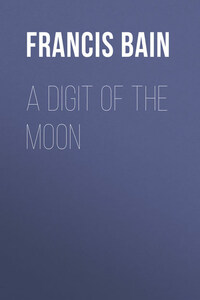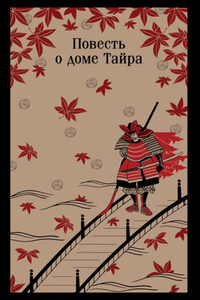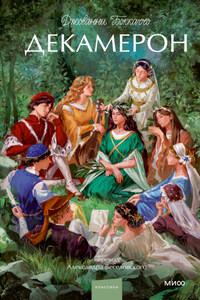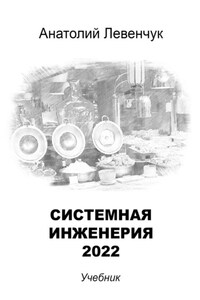PREFATORY NOTE TO SECOND EDITION
The better to illustrate how, in Hindoo mythology, the ideas of a beautiful woman, the Moon, and the Sea, dissolve and disappear into one another, I have placed on the fly-leaf of this edition a single stanza, drawn from another part of my MS., which characteristically exemplifies that dissolving view: subjoining here, for the benefit of the uninitiated, a literal translation:
O thou lovely Incarnation of the Nectar-dropping Moon, come down from Heaven to lighten our Darkness: Delight of the Race of Man: retaining in thy Womanhood the dancing Play of the Waves of that Sea of Milk out of which thou wert originally churned by the Gods: we the Three Worlds (i. e. of Childhood, Manhood, and Age) do worship the Orb of thy Bosom that possesses for us a Threefold Mystical Feminine Energy1 being a Pitcher of Milk for us, when we are Born: a Pillow for us, in the Middle of the Path of Life: and a Shrine, in which we take refuge to die at the last.
But we lose, in a literal prose version, the reverberation, and the echo of the Sea, which undertones the meaning of the words like the accompaniment to a song. This sound we might make some attempt to preserve, without doing violence to the sense, as follows;
Like a New MODE'S exquisite Incarnation,
In the Ebb and Flow of a Surging Sea,
Wave-breasted Beauty, the whole Creation
Wanes, and waxes, and rocks on thee!
For we rise and fall on thy Bosom's Billow
Whose heaving Swell is our Home Divine.
Our Chalice at Dawn, and our hot Noon's Pillow,
Our Evening's Shrine.
Woolacombe Bay, April 29, 1901.
PREFACE TO FIRST EDITION,
A Digit of the Moon is the sixteenth part of a much longer work, entitled The Churning of the Ocean of Time2. A well-known Hindoo legend recounts how the gods and antigods assembled to churn the ocean of milk3 for the nectar of immortality. After throwing in herbs of various kinds, they churned it with Mount Mandara, and obtained the nectar, with certain other things, one of which was the MOON, who by the way is often called 'the Lord of Herbs.'
But in Sanskrit, the Moon, like the Sun, is a male. Hindoo poets get over this difficulty, when they want a female Moon, by personifying his attributes, or making a part do duty for the whole. Thus, his disc is divided into sixteen parts, called 'streaks' or 'digits' and a beautiful woman is 'a digit of the moon.'
The whole work, then, called 'The Churning of the Ocean of Time,' is, like the Moon, divided into sixteen parts, each named after one of the digits of the Moon. The one now before the reader is called A Digit of the Moon, turned red by the rays of the dawning Sun4. The point lies in the play on the word red, which in the original also means 'enamoured,' 'in love.' That is to say, that the heroine of the story 'turns red,' i. e. falls in love with the hero, whose name, it will be found, is Süryakánta, or 'Sunstone.'
*****
I little thought, ten years ago, that it would ever be my lot to play, as it were, the part of Boccaccio, and bring forth meat from the eater, stories from a plague. Yet here also the unexpected came about, in the following way.
Considering how recently Europe has become aware of the very existence of a Sanskrit literature, I had often wondered whether there might not be hidden away, here and there, in the vast ocean of India, literary treasures still undiscovered, which future 'churning' might bring up. But I did not expect that my question would ever receive a practical answer. However, a few years ago, when the plague was decimating the city of Poona, carrying off its victims by hundreds a day, personal acquaintance with some of the officers appointed by Government to cope with the enemy put it into my power to do a slight service to an old Marátha Brahman, whose name, by his own particular desire, I suppress. My 'service' was indeed a mere trifle, a thing of which no Englishman would have thought twice. Hindoos, however, look on these matters with very different eyes. An Englishman's house may be his castle, but a Hindoo's house is a shrine, a holy of holies, which for unhallowed footsteps to invade is desecration. I was amused to find that my old Brahman regarded me almost as though I had preserved his family from nameless and everlasting infamy. And when he subsequently discovered that I was a humble student of the 'polished, sacred' language, and could make shift to admire his beloved Kálidás in the original, his esteem for me rose to a degree almost embarrassing. He came two or three times to see me, and took an obvious pleasure in dilating on the beauties of his ancient authors to one who was at least a good listener. But it struck me as curious, that every time he went away he seemed as it were labouring to deliver himself of some important communication, which nevertheless he shrank from discovering to me; and he always eventually departed, with an air of some confusion, and his secret left untold. I thought at the time that he was only nerving himself to make some request of me, of which he doubted the reception, and was unable to screw his courage to the sticking-point. But I was mistaken.








